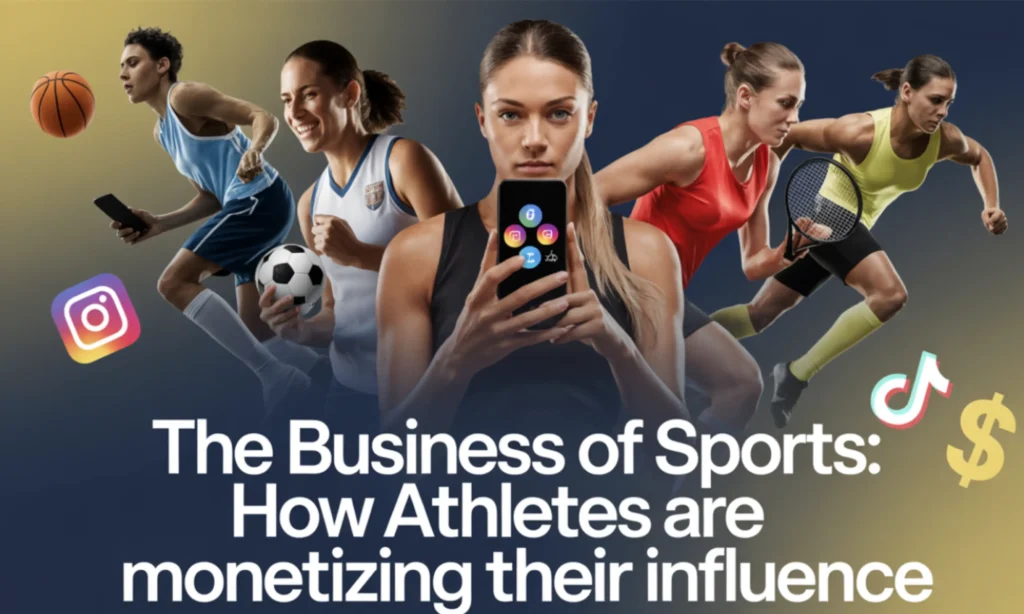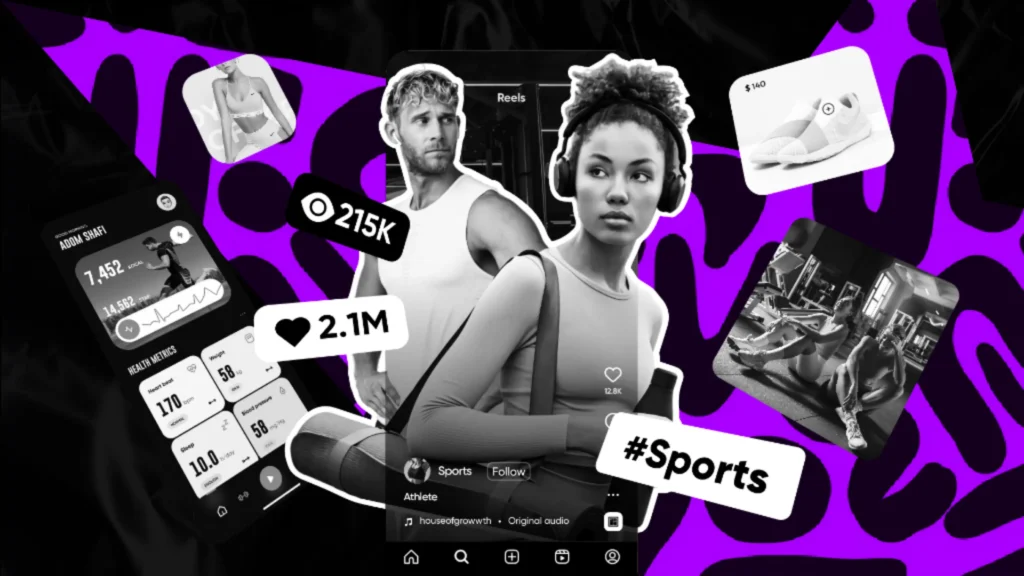
The Rise of Athlete Branding in the Digital Era

In today’s hyper-connected world, athletes are no longer just competitors on the field they are global brands. With the rise of social media and digital platforms, professional athletes are leveraging their popularity to build lucrative income streams far beyond their contracts and prize winnings. From endorsement deals and personal brands to entrepreneurial ventures and digital content monetization, the business of sports has evolved into a billion-dollar ecosystem driven by influence, engagement, and innovation.
Social Media as a Catalyst for Influence Monetization

The transformation began with the explosive growth of platforms like Instagram, TikTok, Twitter, and YouTube, where athletes gained direct access to millions of followers. This shift allowed them to control their narrative, grow personal fan bases, and engage with audiences without traditional media gatekeepers. Top-tier athletes like Cristiano Ronaldo, LeBron James, and Serena Williams have capitalized on this influence, commanding six-figure sums per sponsored post.
Brands now evaluate engagement metrics, follower count, and audience demographics to partner with athletes for targeted marketing. Even emerging athletes can monetize niche audiences by aligning with relevant sponsors or launching their own merchandise.
Sponsorships and Endorsements: A Core Revenue Stream

Sponsorship deals remain the cornerstone of athlete monetization. According to Forbes, athletes like Lionel Messi and Roger Federer earn significantly more from endorsements than from playing. These deals include:
- Traditional endorsements (sports apparel, supplements, beverages)
- Brand ambassadorships (multi-year contracts with lifestyle brands)
- Equity deals (partnering with startups for ownership instead of cash)
An emerging trend is performance-based sponsorships, where athletes are paid based on engagement, performance statistics, or social media traction, creating a direct link between influence and income.
Athlete-Driven Entrepreneurship and Investment

Beyond endorsements, athletes are stepping into the world of entrepreneurship and venture capital. Kevin Durant, Maria Sharapova, and Shaquille O’Neal exemplify the new breed of athlete-entrepreneurs. Key areas include:
- Founding businesses: Many athletes launch fitness brands, clothing lines, and wellness products.
- Equity investments: Athletes are investing in startups, tech firms, and e-commerce platforms, diversifying their portfolios.
- Media companies: Platforms like Uninterrupted (LeBron James) allow athletes to produce content that amplifies their voice and vision.
These ventures not only offer financial returns but also enhance the athlete’s brand equity and market relevance post-retirement.
Merchandise, Licensing, and Personal Branding

A powerful revenue stream for athletes lies in merchandising and personal brand licensing. From signature shoes to apparel lines and digital collectibles, athletes create demand-driven products that resonate with their fan base. Notable examples include:
- Michael Jordan’s Air Jordan line under Nike one of the most successful athlete-brand collaborations in history.
- Naomi Osaka’s fashion partnerships with brands like Levi’s and Nike.
- NIL (Name, Image, and Likeness) agreements in college sports, enabling student-athletes to profit from their brand.
This trend is supercharged by fan-driven commerce, where communities willingly support their favorite athletes by purchasing exclusive content, apparel, or NFTs.
Content Creation and Direct-to-Fan Platforms
With the creator economy in full swing, athletes are turning to YouTube, Twitch, and podcasts to build content empires. These platforms allow athletes to:
- Monetize views and sponsorships
- Sell subscriptions or exclusive content
- Build a deeper fan connection through storytelling
For instance, NFL star Cam Newton’s YouTube channel features behind-the-scenes training, personal insights, and interviews, offering fans a direct look into his life.
Platforms like Patreon, Cameo, and Substack also allow athletes to deliver exclusive, monetized content and earn recurring revenue through memberships.
NFTs, Web3, and the Future of Athlete Monetization

The next frontier in athlete monetization is Web3 technologies, especially NFTs (non-fungible tokens), decentralized fan clubs, and metaverse engagements. Blockchain enables:
- Tokenized access to athletes’ content and events
- Digital memorabilia ownership (e.g., highlight clips as NFTs)
- Fan governance models where token holders can vote on athlete decisions
Athletes like Tom Brady (Autograph) and Simone Biles (NFT releases) are pioneering these spaces, creating new digital economies around their personal brands.
Monetizing Influence While Maintaining Authenticity
While the potential to earn is immense, successful athletes focus on aligning their monetization strategies with their values and audience expectations. Authenticity is critical fans are quick to detect insincerity. The most successful athlete brands are built on:
- Transparency and trust
- Consistent engagement
- High-quality, meaningful collaborations
Athletes who share their journeys, challenges, and triumphs in a real, relatable way are the ones who sustain long-term influence and profitability.
Global Reach and Localization Strategies

Modern athletes monetize across geographies, creating localized campaigns tailored to diverse fan bases. For example:
- Cristiano Ronaldo’s Arabic, Spanish, and English content targets fans worldwide.
- Asian athletes are collaborating with global brands to bridge East-West markets.
Localization enhances sponsorship appeal and ensures that monetization is maximized across linguistic and cultural lines.
Influence Is the New Currency in Sports

The modern sports industry is not just about performance it’s about presence, perception, and power. Athletes who understand how to monetize their influence are unlocking unprecedented financial opportunities. From digital content to equity stakes, the business of sports is undergoing a revolution where every post, pitch, and play can translate into profit.
As the landscape continues to evolve, the athletes who embrace innovation, build authentic brands, and connect with audiences at scale will dominate both on and off the field.
